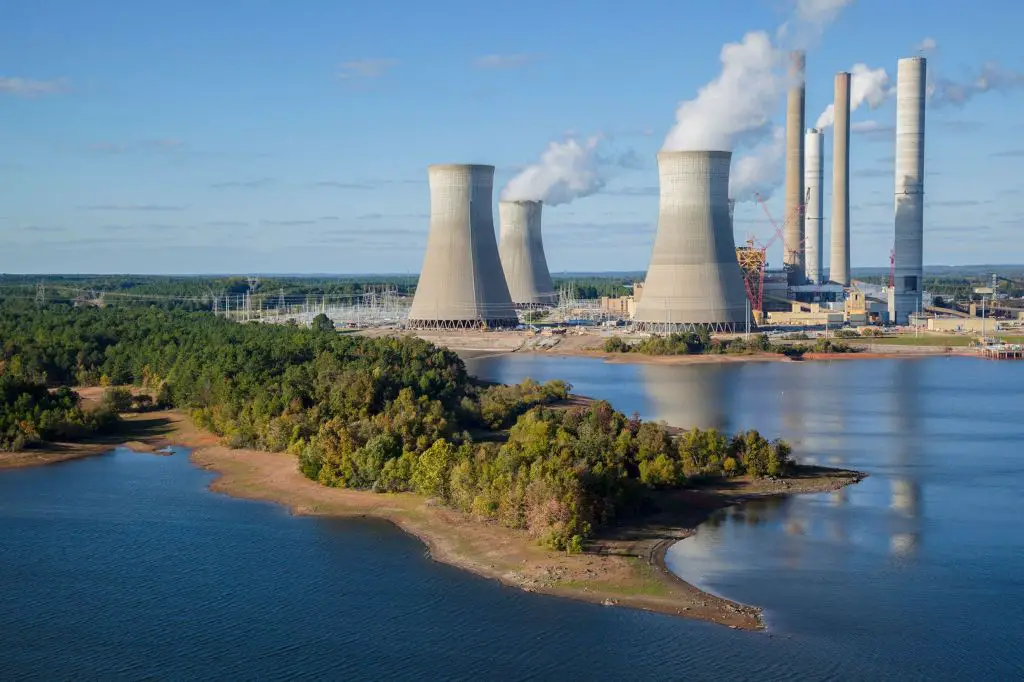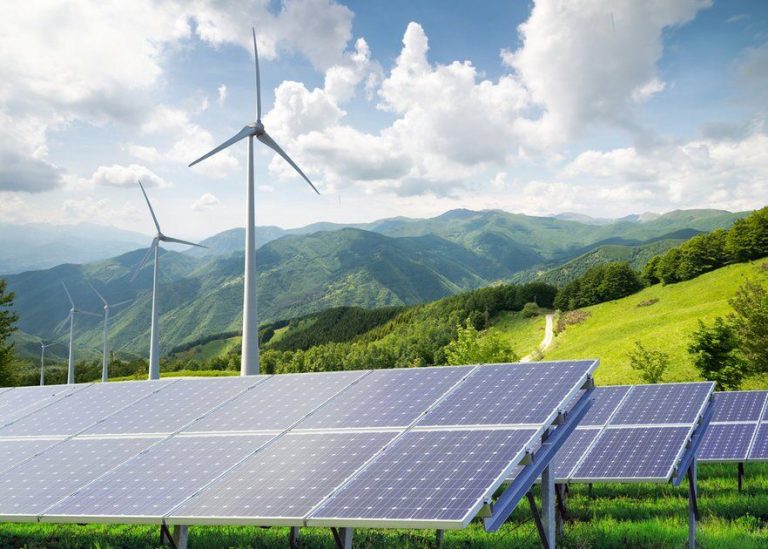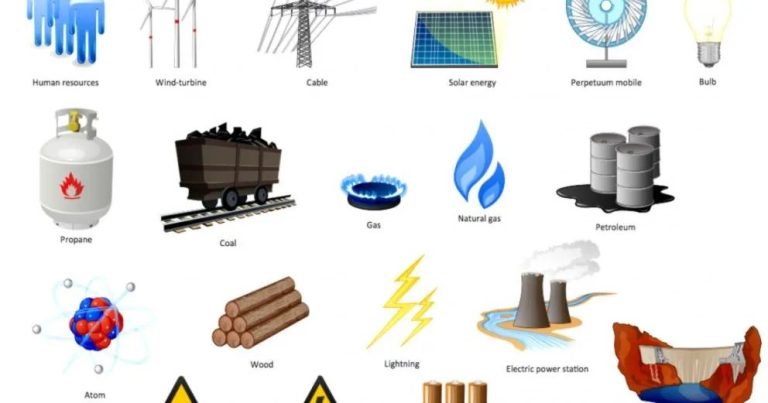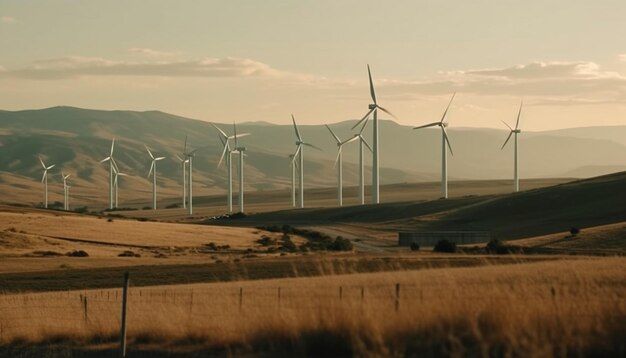Why Are Fossil Fuels Bad For The Environment?
Fossil fuels like coal, oil, and natural gas are non-renewable energy sources formed from the remains of ancient plants and animals. Burning fossil fuels to generate energy has been a primary driver of economic growth since the Industrial Revolution, but it comes at a steep cost to the environment and human health. When fossil fuels are extracted and burned they release significant amounts of carbon dioxide and other greenhouse gases, air pollutants, and toxic contaminants that are harmful to our planet and society. In this article we will examine why continued reliance on fossil fuels is unsustainable and explore the benefits of transitioning to clean, renewable energy sources like wind, solar, hydropower, geothermal and biomass energy.
The main reasons that fossil fuels are bad for the environment include:
- Greenhouse gas emissions that contribute to climate change
- Air pollution that harms human health
- Water pollution from extraction, refining, and waste products
- Habitat destruction from mining/drilling operations
- Dependence on imported fuels that threatens energy security
- Resource depletion as supplies dwindle
Greenhouse Gas Emissions
The primary issue with fossil fuels is that burning them releases large amounts of carbon dioxide (CO2) into the atmosphere. CO2 is a greenhouse gas, meaning it absorbs and traps heat from the sun. As we burn more fossil fuels for energy, CO2 concentrations in the atmosphere increase. Higher CO2 levels cause more heat to be retained, leading to global temperature rise.
The correlation between CO2 emissions and global warming is well-established in climate science. The Intergovernmental Panel on Climate Change (IPCC) has definitively linked human CO2 emissions from fossil fuel combustion as the main driver of climate change since the mid-20th century. Unless CO2 emissions are drastically reduced, scientists predict global temperatures could increase by 2-6°C by 2100. This would lead to catastrophic impacts like sea level rise, increased extreme weather, species extinction, and more.

Fossil fuels account for over 75% of the world’s energy use and are responsible for over two-thirds of global greenhouse gas emissions. Reducing reliance on coal, oil, and natural gas is critical to limiting climate change and its damaging consequences. Shifting to renewable energy sources like solar, wind and hydropower that generate little to no CO2 emissions during operation is an essential step.
Air Pollution
Burning fossil fuels like coal and gasoline emits harmful air pollutants such as sulfur dioxide, nitrogen oxides, and particulate matter into the atmosphere. These air pollutants can cause serious health effects. Sulfur dioxide and nitrogen oxides contribute to acid rain formation, which damages forests, soils, rivers, and lakes. Particulate matter can penetrate deep into lungs and cause respiratory diseases like asthma. According to the World Health Organization, around 7 million people die prematurely every year from air pollution, making it the largest environmental health risk globally.
Children, older adults, and people with existing heart and lung conditions are especially vulnerable to the impacts of air pollution. Exposure to high levels of air pollutants over months or years can cause chronic health conditions. Air pollution not only impacts human health, but also harms animals, ecosystems, and agricultural crops.
Transitioning from fossil fuels to clean, renewable energy sources like solar, wind, and geothermal can significantly reduce emissions of harmful air pollutants. Improving energy efficiency, using public transportation, and driving electric vehicles can also decrease air pollution from burning gasoline and diesel fuels. Strong air quality regulations and enforcement are essential to protect public health.
Water Pollution
The extraction and transportation of fossil fuels can cause disastrous oil spills that pollute waterways and oceans. Major spills like the Exxon Valdez and Deepwater Horizon released millions of barrels of crude oil into pristine aquatic environments, harming wildlife like birds, fish, and marine mammals. But even smaller spills, leaks, and runoff from oil and gas operations add up to a huge ongoing problem. Once a spill occurs, the oil coats everything it touches and is extremely difficult to clean up fully. The chemicals and compounds in oil are toxic to most forms of life and can persist in the environment for years. Runoff from coal mining and waste products from burning fossil fuels also end up in our water supply, contaminating drinking water sources and recreation sites. Transitioning to clean, renewable energy sources like solar and wind would drastically reduce the risks of water pollution from fossil fuels.
Habitat Destruction
Extracting fossil fuels through mining and drilling often destroys or degrades the natural habitats of plants and animals. Mining coal requires stripping away soil and vegetation to reach coal reserves underneath. This profoundly damages forests, wetlands and other ecosystems that plants and wildlife depend on.
Drilling for oil and gas can also disrupt habitats through the construction of access roads, underground pipelines and other infrastructure. Offshore oil rigs industrialize huge swaths of ocean that serve as habitats for a diverse array of marine species.
The impacts of habitat loss include declining biodiversity, poorer water and air quality, increased flooding and erosion, and reductions in carbon sequestration from plants. Protecting critical habitats is key to preserving biodiversity and mitigating climate change.
Reliance on Imports
Importing fossil fuels such as oil and natural gas from foreign countries can negatively impact a nation’s energy security and geopolitics. Countries that import large quantities of fossil fuels are reliant on the exporting nations for their energy needs. This reliance reduces energy independence and leaves importing countries vulnerable to price shocks and supply disruptions caused by political instability, natural disasters, wars, or embargoes in the exporting nations.
For example, the United States imports millions of barrels of crude oil per day. Disruptions in oil producing regions like the Middle East can cause global oil prices to spike, directly impacting the U.S. economy. Reliance on imported fossil fuels also transfers enormous wealth to oil exporting countries, some of which use these revenues to fund activities counter to U.S. interests. In addition, the U.S. military budget includes billions for patrolling global shipping lanes and protecting oil supplies overseas. Reducing reliance on fossil fuel imports would strengthen American energy security and could reduce military costs.
Resource Scarcity
Fossil fuels like coal, oil and natural gas are non-renewable resources. This means that, once used, they cannot be replaced or replenished on any meaningful human timescale. Fossil fuels formed underground over millions of years from the remains of ancient plants and animals. We cannot remake fossil fuels quickly the way we can harness energy from the sun, wind or water. At current rates of consumption, our known reserves of fossil fuels will eventually run out.
Coal, oil and natural gas reserves are finite and diminishing. As easily accessible stores of these fossil fuels become depleted, it takes more energy and expense to locate and extract remaining reserves. Supply struggles to keep up with increasing global demand. This leads to price instability and concerns about energy security. If we continue relying heavily on fossil fuels that will someday be exhausted, we risk severe economic and environmental disruption. To avoid potential energy shortages and price volatility in the future, we must transition to renewable resources that can be replenished indefinitely.
Health Impacts
Burning fossil fuels releases a toxic mix of air pollutants that can have severe consequences for human health. Fine particulate matter, nitrogen oxides, sulfur oxides, mercury, and dozens of other substances from coal, oil, and natural gas contribute to respiratory diseases, cardiovascular disease, cancer, birth defects, premature death, and a host of other ailments.
Particulate matter, microscopic particles that penetrate deep into the lungs and cardiovascular system, leads to thousands of premature deaths each year in the US alone. Nitrogen oxides and volatile organic compounds react in the atmosphere to produce ground-level ozone, a key component of smog. Ozone irritates the respiratory system, reduces lung function, aggravates asthma, and inflames lung tissue.
Sulfur dioxide and nitrogen oxides precipitate into fine acid particles that contribute to bronchitis and childhood asthma. Mercury, lead, arsenic, and other toxic metals released from burning coal accumulate in fish, crops, and livestock animals. These eventually enter the food supply and harm neurological development in infants and children.
Multiple studies have linked proximity to coal plants and exposure to combustion pollutants with increased hospitalizations and deaths from respiratory, cardiovascular, and neurological diseases. The health costs of fossil fuel pollution in the US alone is estimated to be hundreds of billions per year. The proven links to disease, the enormous costs, and the availability of cleaner alternatives make transitioning to sustainable energy a moral and economic imperative.
Transitioning to Clean Energy
The world needs to shift away from its heavy reliance on fossil fuels and accelerate the transition to renewable energy sources that do not emit greenhouse gases. There are several renewable energy technologies that could replace fossil fuels such as:
-
Solar power from photovoltaic panels that convert sunlight into electricity.
-
Wind turbines that generate electricity from kinetic energy in wind.
-
Hydropower from flowing water in dams and tidal energy from the natural rise and fall of coastal waters.
-
Geothermal power that harnesses heat from below the earth’s surface for heating and electricity generation.
-
Biomass from organic plant and animal waste that can be used to produce fuel, gas, or heat.
These renewable energy sources produce little to no greenhouse gas emissions, do not pollute the air or water, and many of them like sunlight, wind, and water power are constantly replenished. Widespread adoption of renewable energy will reduce reliance on coal, oil, and natural gas – the main culprits behind climate change and environmental pollution.
Governments need to invest heavily in renewable energy infrastructure such as wind farms, solar fields, hydroelectric dams, and biomass plants. They also need to provide incentives for households and businesses to install solar panels, use green power, and make energy efficiency upgrades. The faster the world transitions to renewable energy, the more likely we are to curb emissions and prevent the worst impacts of climate change.
Conclusion
In summary, our reliance on fossil fuels like coal, oil and natural gas is bad for the environment and has devastating consequences for our planet.
By burning fossil fuels, we generate massive amounts of greenhouse gases which contribute to climate change and global warming. The pollution from fossil fuels contaminate our air, water and land, destroying ecosystems and harming human health at the same time. As we deplete finite fossil fuel reserves, we must also deal with energy scarcity and geopolitical conflicts over dwindling resources.
Transitioning to clean, renewable energy sources like solar, wind and geothermal is critical for creating a sustainable future. Phasing out our dependence on fossil fuels will reduce emissions, pollution, habitat destruction and health impacts. Investing in clean tech and green solutions allows for continued economic growth without sacrificing our environment.
The environmental harm caused by fossil fuels is simply too great. Our survival depends on developing clean energy alternatives that do not pollute or warm the planet. By shifting away from coal, oil and gas, we can build an eco-friendly society focused on renewable power.






